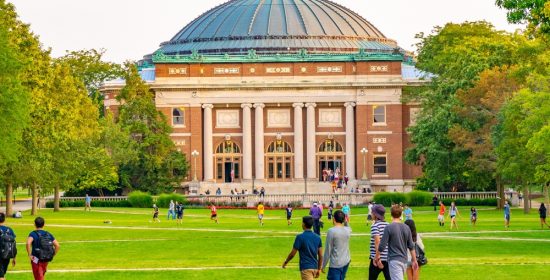Choosing the right college for your higher education is crucial and may involve choosing between public vs private colleges. Many students assume that private colleges are better than public colleges. But that may not necessarily be true.
Choosing a college that is good for you is a very subjective decision. Again, the general assumption regarding the difference between a private and public university is in terms of finance and facilities. Since public colleges typically have less expensive fees, people think they need more resources.
You can apply to various public and private colleges, each with pros and cons.
This blog compares and summarizes all the necessary information regarding the distinction between public and private institutions to simplify your decision-making process. But, first of all, let’s understand what we mean by public and private colleges.
What Are Public Colleges?
Public colleges are universities, community and technical colleges, and other higher education institutions publicly funded by state or local governments. Private donations or grants may also support them. Public colleges provide a variety of educational programs and services, including academic and career counseling, vocational and technical training, and undergraduate and graduate degrees.
What Are Private Colleges?
Private colleges are higher education institutions that are privately owned and operated. These types of colleges offer various degrees and programs, from Bachelor’s degrees to Doctoral programs.
Private universities typically have smaller classes and more personalized instruction than public institutions, allowing students to build close relationships with faculty members. Private colleges also offer flexible curriculums, resources, and activities like research opportunities and internships. It is important to note that private colleges may be more expensive than public universities due to a lack of government funding.
However, many private colleges offer generous scholarships and financial aid packages to help offset the cost. Additionally, private colleges often have more stringent admission requirements, so prospective students need to review the application and selection criteria before applying. Ultimately, private colleges provide students with an intimate and enriching learning environment to help them succeed in their future endeavors.
What Are the Differences Between Public vs Private Colleges?
There are quite a few significant differences between public vs private colleges, many of which often need to be addressed. In fact, many students who wonder, ‘What is the difference between a private and public university?’ should know that differences between public vs private colleges and public vs private universities are almost the same.
Here is a summary of these differences before we dive into further details. After evaluating these factors, you can finally answer the question, ‘Are private colleges better?’.
| Point of Difference | Public Colleges | Private Colleges |
|---|---|---|
| Financed By | The state government and the subsidies it offers finance public colleges | Private businesses, investors, and tuition fees support private colleges |
| Student Fees | They charge a small tuition fee because of government funding | Higher tuition at private colleges is used to pay for the school’s various requirements |
| Scholarships Available | Offered financial aid is less than that of private colleges | In order to assist students in covering the high tuition costs, private colleges offer more lucrative scholarship opportunities |
| College Accreditation | Government agencies on either the state or federal level accredit public colleges | Private colleges must obtain national accreditation |
| College Admission | Typically, public colleges have fewer strict admissions requirements and offer more seats | Private colleges only accept a small number of students who meet strict requirements and undergo a thorough evaluation |
| Teachers’ Choice | Professors are rated based on how well they are able to teach | Before being chosen, professors are assessed based on their research activity |
| Majors offered | There are more majors available for students to select from | There are fewer majors from which to choose |
Funding
As far as public vs private colleges is concerned in terms of funding, their means of acquiring funds are starkly different. As mentioned, public colleges rely on the state government to establish and find their institutions.
These government funds comprise the tax money paid by the citizens. As such, the government can alter its operational policies can also be by. At the same time, private colleges are funded privately through organizations and donors. Private colleges get to make their policies for implementation.
Tuition Fee Structure
In terms of the tuition fee structure, public colleges have a much lower fee structure than private colleges. This expense also often includes campus residence expenses. Doubtlessly, public colleges are much more affordable than private colleges.
This means public colleges are a good choice if you aim for a good education with minimal expenses. Nonetheless, there is a slight difference in fee structure within public colleges. Students living in the same region as the public save more on fee costs than outer state students.
Financial Aid
Public college students can get financial aid or scholarships through third-party funding or donor organizations. Private universities can award students more scholarships and financial aid due to their endowment funds. These scholarship and financial aid packages at private institutions often include total tuition fees, rooming, and boarding.
Therefore, students should continue applying to private and public colleges. Yes, the fee structure of private colleges is frequently skyrocketing. However, scholarship and financial aid packages can often do more than make up for them.
Research Opportunities
Government funding of public colleges allows them to provide quality research opportunities and facilities. These include well-equipped and well-designed labs as well as relevant lab resources. However, these research efforts by public colleges often go unmatched when it comes to private colleges.
Although, that is not to say private colleges can never have such facilities. There may be exceptions out there. However, mostly, private colleges are not known to provide substantial research opportunities.
Programs and Majors
Public colleges offer various majors and programs catering to all fields. This is a strategy for and a consequence of having many such students. Among the many offered, you can find a major of desire in a public college. However, private colleges are more specialized. Thereby, they only contain research opportunities and facilities relevant to the field concentration of that particular private university.
Acceptance Rate
Acceptance rates in public colleges are higher than those in private colleges. This is because public colleges are larger with more slots to allow much more students to fill in. So, basically, if you have applied to both public and private colleges (which is ideally advised), there is a greater chance of hearing back positive feedback from a public university.
However, this does not mean anyone can anyhow get into public colleges. Some public colleges are also known to have rigorous processes, and selective admissions strategies, and are therefore tough to get in.
Campus Size
Public colleges are abundant in infrastructural and class sizes compared to private colleges. Due to their large infrastructural area, public colleges can accommodate a large number of students. At the same time, private colleges have a smaller geographical area with a smaller class size. As such, class spaces can either enhance the intimate learning experience of students in private college classrooms or make them feel cramped.
Affiliations
Under government funding and policies, public colleges have no affiliation with religion or any other population or group. Although, private colleges are known to have religious or gender affiliations. These affiliations create a kind of bias whereby they only support, protect, and facilitate the dominant group which can be religion, gender, etc.
How to Choose Between a Private vs Public College for Higher Education?
It may sound like a dilemma, but with careful planning, you can decide which college – private or public meets your needs. Both Private and Public colleges offer unique characteristics, and the only way to find the most suitable college is through sufficient planning.
Here’s how:
- List your priorities, such as finances, scholarships, majors and programs., etc.
- Evaluate various public and private colleges before choosing either one of the two options.
- Moreover, send your application to every college relevant to your field to increase your chances of acceptance.
Here are a few factors you can consider before choosing a college for yourself:
- The learning environment of the college
- The campus life
- Class size
- Campus diversity
- Extracurriculars, etc.
It is wise to visit and tour the college to understand it better. The best college for you is the one you can afford, which offers your dream program and has all the basic facilities for all students.
What Are the Next Steps After Choosing Between a Private or a Public College?

The following steps are all too simple. Once you’ve heard the feedback from a couple of colleges, narrow down the one you want to go to. Or, if you’re at the first stage and simply exploring colleges, begin drafting applications as soon as you shortlist a few. Again, make your decision between public vs private colleges on several factors, including the faculty diversity, extracurriculars offered, research opportunities, and of course, (but not only) finances.
Explore it further once you start college, whether public or private. Finalize the application and submit any other documents asked of you. Trust yourself and your decision, and you will be good to go!
We hope this blog helped you find the answers you were looking for. Feel free to browse through our site for any information about any college-related topic.



